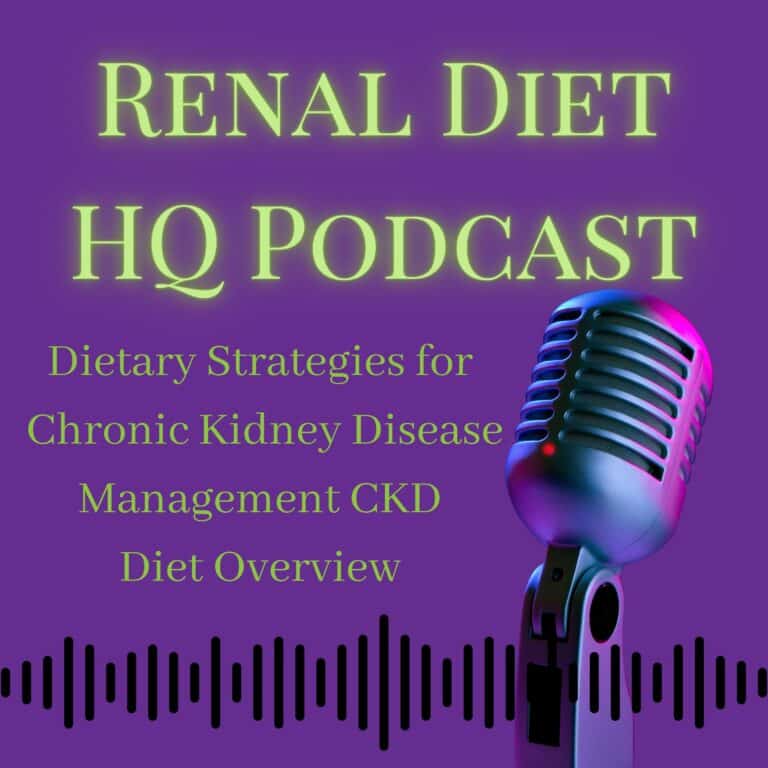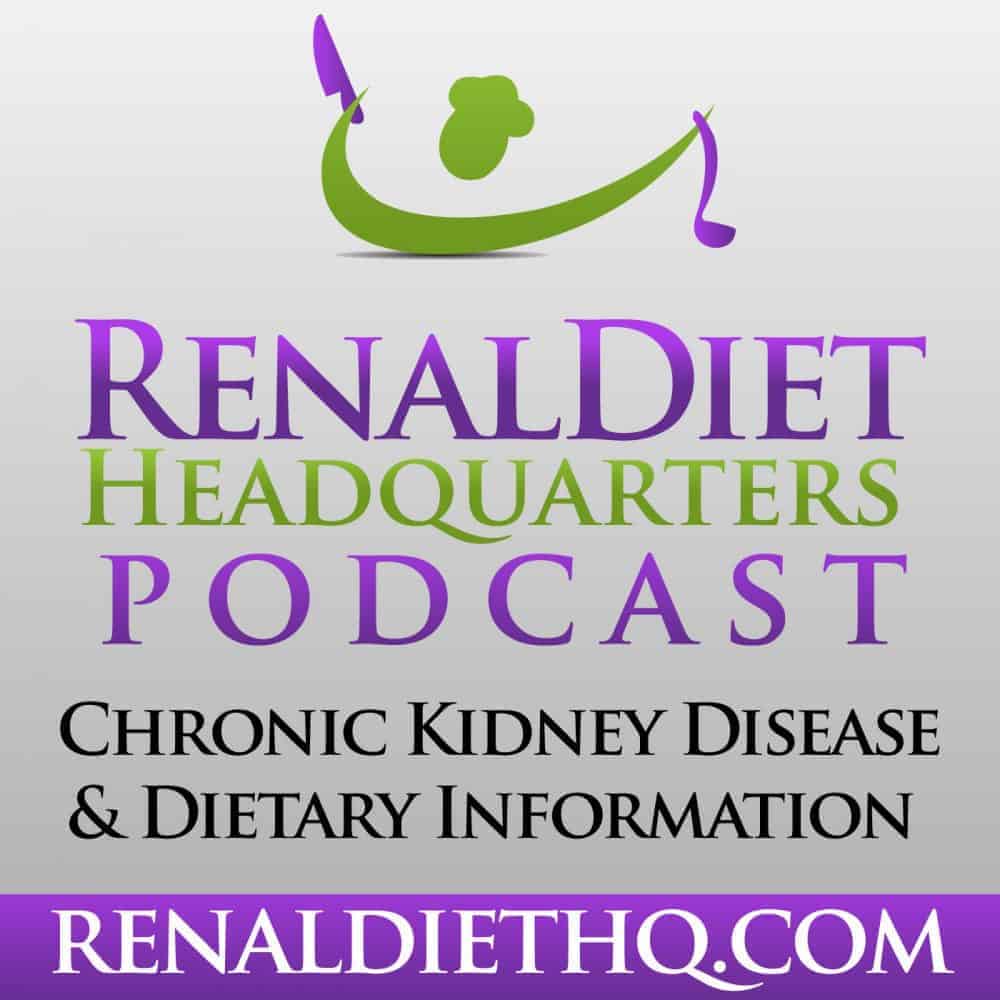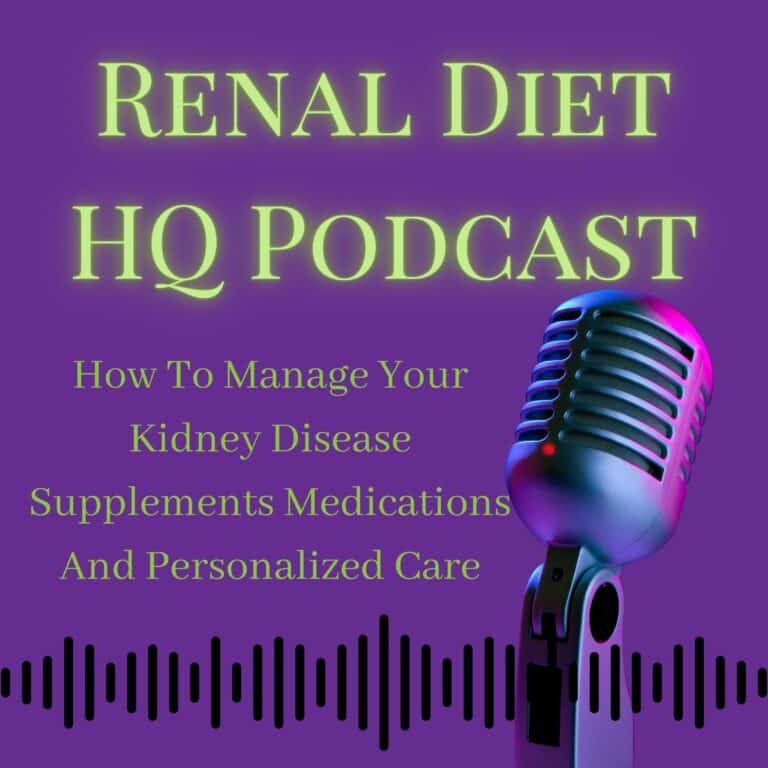The Impact of Chronic Kidney Disease on Daily Life-Podcast
Podcast: Play in new window | Download

Living with chronic kidney disease (CKD) presents a unique set of challenges that can significantly impact daily life. Adjusting your lifestyle, especially your dietary habits, becomes essential for managing the disease and maintaining your health. The emotional toll of CKD is substantial, necessitating a strong support system. In this blog post, we will explore the various aspects of living with CKD, from dietary adjustments to emotional and social support, and provide practical tips for managing the disease effectively. I'm Mathea Ford, a registered dietitian nutritionist specializing in kidney disease and owner of Renal Diet HQ. I help people like you improve their health through simple, delicious meal changes. Together, we can transform your eating habits, boost your overall well-being, and ensure you enjoy every bite along the way. Let's embark on this journey to better health together.
For More Recipes and Ideas --->> Get Your Free Meals and Recipes That Are Perfect for Pre-Dialysis Diets, Pre-Dialysis with Diabetes, or Dialysis Diets.
Understanding the Impact of CKD on Daily Life
Living with CKD requires continuous adaptation and resilience. The daily challenges span physical, emotional, and social dimensions. Physically, adhering to a strict diet that limits protein, potassium, phosphorus, and sodium intake is crucial. This can be particularly difficult when dining out or attending social events. Additionally, CKD patients must manage fluid intake to prevent excess fluid buildup, which can lead to high blood pressure and edema. The complex regimen of medications, including phosphate binders, blood pressure medications, and erythropoiesis-stimulating agents, can be overwhelming. Symptoms such as fatigue, itching, and bone pain further impact the quality of life.
Dietary Management for CKD Patients
Dietary changes are a fundamental aspect of managing CKD. Patients need to adhere to a renal diet tailored to their specific condition and stage. This typically involves controlling protein intake, limiting phosphorus, potassium, and sodium, and monitoring calorie intake to either gain or lose weight. Reducing protein intake helps minimize the burden on the kidneys, as protein metabolism produces waste products that the kidneys must filter. Monitoring phosphorus, potassium, and sodium levels is essential to prevent electrolyte imbalances, bone problems, and cardiovascular complications. Working closely with dietitians to develop personalized meal plans that meet nutritional needs while adhering to dietary restrictions is vital. Proper dietary management plays a crucial role in slowing the progression of CKD and reducing the risk of complications.
Fluid Management and Medication Regimen
Managing fluid intake is vital for CKD patients to prevent fluid buildup, which can cause high blood pressure and edema. As the disease progresses, patients must constantly monitor their liquid intake. Additionally, managing a complex medication regimen, including phosphate binders, blood pressure medications, and erythropoiesis-stimulating agents, is crucial. These medications help manage symptoms and prevent complications, but keeping track of them can be challenging. It's essential to stay organized and maintain a consistent routine to ensure medications are taken correctly.
Emotional and Social Dimensions of CKD
The emotional impact of CKD is profound. Patients often experience fear, anxiety, depression, and frustration. Addressing these emotional challenges is crucial, as they can significantly impact a patient's quality of life and overall well-being. Building a strong support system of family, friends, and support groups can provide understanding, empathy, and encouragement. Seeking professional help from mental health experts or counselors can offer valuable coping strategies and emotional support. Patients should also prioritize self-care, including stress reduction techniques like meditation, mindfulness, and relaxation exercises. Maintaining a positive outlook, setting realistic goals, and engaging in activities that bring joy can contribute to better emotional health.
Coping Strategies for CKD Patients
To manage the emotional impact of CKD, patients should develop a strong support network, seek counseling or mental health support, and actively engage with healthcare providers. Self-care practices such as stress reduction techniques, meditation, mindfulness, and relaxation exercises can help alleviate emotional stress. Maintaining a positive outlook, setting realistic goals, and staying engaged in enjoyable activities are essential for better emotional health. Addressing emotional challenges is a crucial aspect of holistic CKD management.
Collaborative Care and Personalized Treatment Plans
Collaborative care with dietitians and other healthcare providers is essential for developing personalized meal plans and optimizing CKD management. Proper dietary management is crucial for slowing disease progression and reducing the risk of complications. Patients must adhere to dietary adjustments, such as reducing protein, potassium, phosphorus, and sodium intake, and carefully managing fluid intake. Working closely with healthcare providers ensures that patients receive the necessary support and guidance to manage their condition effectively.
Living with CKD requires continuous adaptation and resilience. By understanding the physical, emotional, and social challenges, and working closely with healthcare providers, patients can manage their condition effectively. Proper dietary management, fluid intake monitoring, and a strong support system are crucial for maintaining optimal health and well-being. Visit Renal Diet HQ for more resources and support, and subscribe to our channel for more videos about living with chronic kidney disease.
Learn more About Unlock the Mysteries of Chronic Kidney Disease and Its Impact on the Body
Learn more about Looking for kidney-friendly picnic recipes perfect for summer-Podcast









